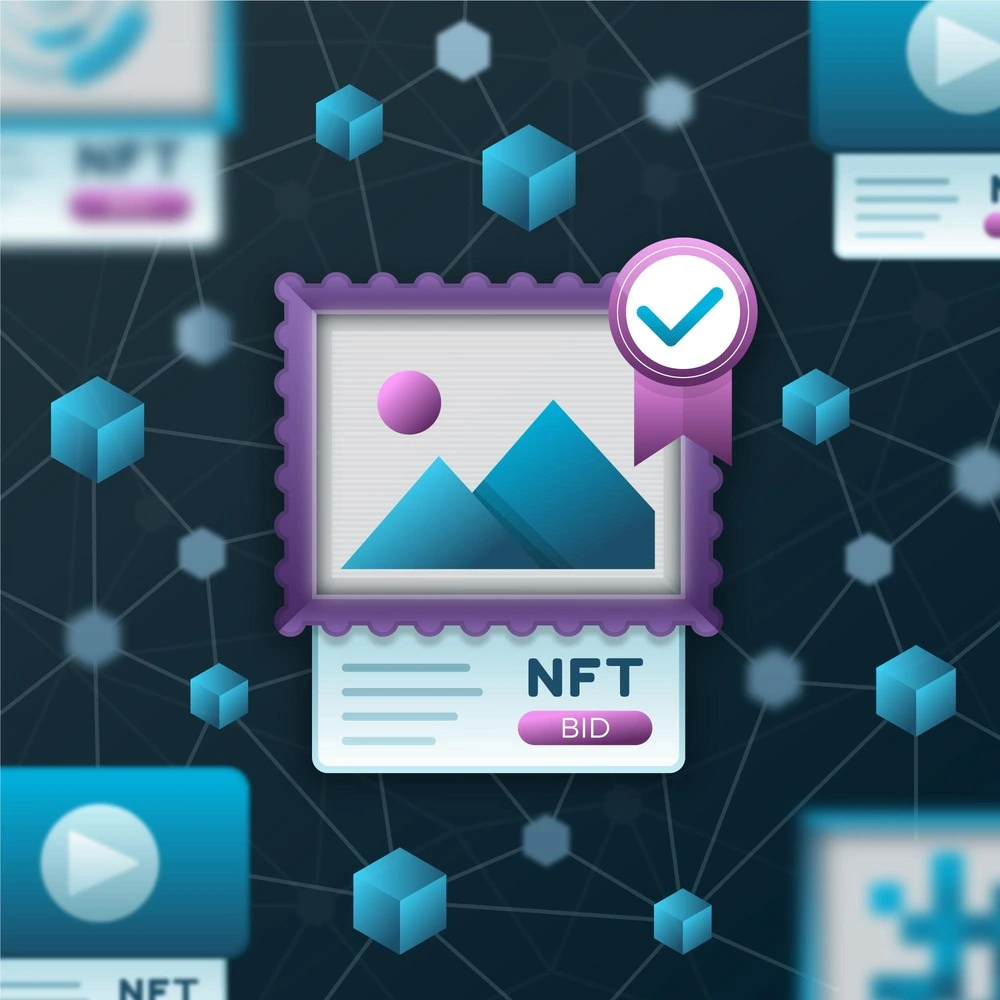In recent years, the digital landscape has witnessed the meteoric rise of two innovative concepts: Non-Fungible Tokens (NFTs) and cryptocurrencies. NFTs represent unique digital assets, while cryptocurrencies serve as decentralized mediums of exchange. While both have distinct characteristic sand purposes, the question arises: Can you trade NFTs for cryptocurrencies? This article delves into the inter section of NFTs and cryptocurrencies, exploring trading possibilities and implications within this evolving digital ecosystem.

Understanding NFTs and Cryptocurrencies
Non-Fungible Tokens (NFTs):
NFTs are cryptographic tokens that serve as a means of proving the ownership or veracity of a singular object or piece of content. Each NFT has unique characteristics that make it unique and irreplaceable, in contrast to cryptocurrencies like Bitcoin or Ethereum, which are fungible and interchangeable. NFTs can represent various digital assets, including artwork, collectibles, virtual real estate, and even digital fashion.
Cryptocurrencies:
Cryptocurrencies are forms of virtual or digital money that use encryption to provide security and operate on decentralized networks driven by blockchain technology. Bitcoin, Ethereum, and other cryptocurrencies enable secure, peer-to-peer transactions without the need for intermediaries like banks or financial institutions. Cryptocurrencies have gained widespread adoption as mediums of exchange, investment assets, and platforms for decentralized applications (DApps).
Trading NFTs for Cryptocurrencies
NFT Marketplaces:
Several online platforms serve as marketplaces for buying, selling, and trading NFTs. These platforms leverage blockchain technology to facilitate transactions and provide a transparent record of ownership. Examples include OpenSea, Rarible, and Foundation, among others. Users can list their NFTs for sale or auction, setting prices in cryptocurrency denominations such as Ethereum (ETH) or Wrapped Bitcoin (WBTC).
Cryptocurrency Exchanges:
Exchanges for cryptocurrencies are online stores where users may purchase, sell, and trade different cryptocurrencies. While NFTs represent unique digital assets, some cryptocurrency exchanges have integrated support for trading NFTs alongside traditional cryptocurrencies. These exchanges offer liquidity and a broader market for NFT trading, catering to users interested in diversifying their digital asset portfolios.
Decentralized Finance (DeFi) Platforms:
Decentralized Finance (DeFi) platforms enable decentralized lending, borrowing, trading, and other financial activities without intermediaries. Some DeFi platforms have integrated NFT functionalities, allowing users to collateralize NFTs for loans, participate in NFT-based liquidity pools, or engage in decentralized trading of NFTs for cryptocurrencies. DeFi protocols like Uniswap and SushiSwap facilitate decentralized token swaps, including NFTs.
Implications of NFT-Crypto Trading
Market Dynamics:
The intersection of NFTs and cryptocurrencies introduces new dynamics to the digital asset market. As NFTs gain popularity and value, they become tradable assets that contribute to the overall liquidity and volatility of the cryptocurrency market. The demand for NFTs may influence cryptocurrency prices, and vice versa, creating interconnectedness within the digital asset ecosystem.
Investment Opportunities:
Trading NFTs for cryptocurrencies opens diverse investment opportunities for individuals and institutions alike. NFTs represent a burgeoning asset class with potential for value appreciation based on factors such as scarcity, provenance, and cultural relevance. Cryptocurrencies serve as liquid assets that enable investors to diversify their portfolios and hedge against market risks. The combination of NFTs and cryptocurrencies offers investors avenues for both short-term trading and long-term investment strategies.
Regulatory Considerations:
The trading of NFTs for cryptocurrencies raises regulatory considerations regarding asset classification, taxation, and investor protection. Regulatory agencies worldwide are grappling with the classification of NFTs and cryptocurrencies within existing frameworks governing securities, commodities, and digital assets. As the market evolves, regulators may introduce guidelines and regulations to mitigate risks associated with NFT-crypto trading, such as fraud, money laundering, and market manipulation.
Conclusion
The trading of NFTs for cryptocurrencies represents a convergence of innovative technologies reshaping the digital economy. NFTs offer unique digital assets with intrinsic value and creative expression, while cryptocurrencies provide decentralized mediums of exchange and investment instruments. The intersection of NFTs and cryptocurrencies unlocks new opportunities for creators, investors, and traders to participate in the evolving digital asset ecosystem.
As the market matures, the trading of NFTs for cryptocurrencies will continue to evolve, driven by technological advancements, market dynamics, and regulatory developments. Whether as collectibles, investments, or digital assets, NFTs and cryptocurrencies are transforming the way we perceive and interact with value in the digital age, ushering in a new era of decentralized creativity and financial innovation.
Disclaimer
FAQ
Yes, you can trade NFTs for cryptocurrencies through various platforms such as NFT marketplaces, cryptocurrency exchanges, and DeFi platforms that support these types of transactions.
Platforms like OpenSea, Rarible, Foundation, Uniswap, and SushiSwap enable users to trade NFTs for cryptocurrencies, offering a mix of auction, direct sale, and decentralized finance options.
Trading NFTs for cryptocurrencies offers diverse investment opportunities, allowing for portfolio diversification, value appreciation based on scarcity and cultural relevance, and participation in the evolving digital asset ecosystem.
The trading of NFTs for cryptocurrencies raises important regulatory considerations, including asset classification, taxation, and investor protection. Regulatory frameworks are evolving to address these issues.


